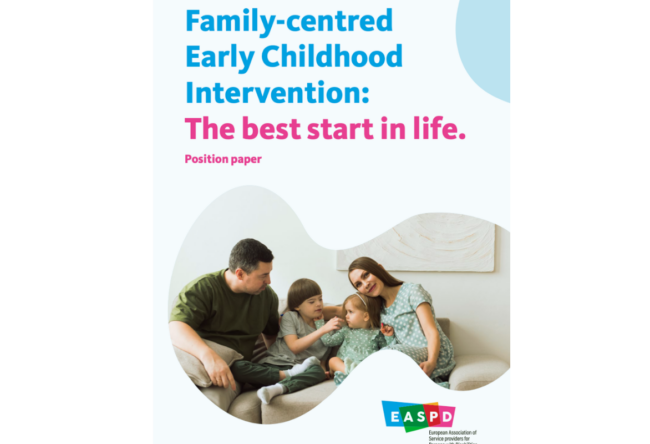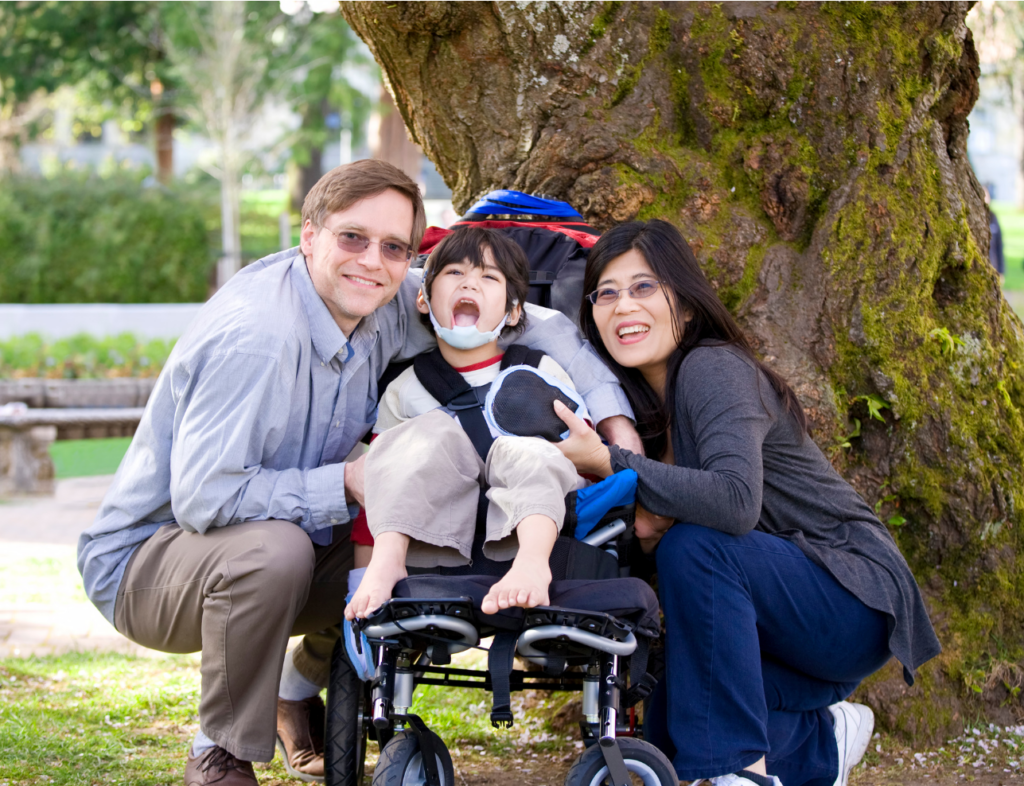Early Childhood interventions: crucial for the empowerment of mothers of children with disabilities
18.09.24

EASPD, in collaboration with various family rights networks, including MMM, has issued a position paper on “Family-centred Early Childhood Intervention” (ECI) for children with disabilities. This approach provides critical support for families, especially mothers, by addressing various challenges and empowering them in their caregiving roles. Designed to be easily accessible, family-centred ECI offers flexible services that emphasise emotional support for caregivers and normalcy within the home.
But why is it essential to take mothers into account during ECI? At the earliest stage of child development for children with disabilities, mothers are most vulnerable to psychological distress, such as perinatal and postnatal depression and anxiety. Symptoms of these disorders can be best supported through family-centred ECI, with personalised family support programmes, counselling, and infant-parent psychotherapy. This will strengthen the emotional connection between mother and child, which is crucial for their respective mental health, especially during challenging periods such as ECI.

By supporting families, ECI equips mothers with the skills and resources to care for their children effectively, thus alleviating some of the caregiving strain. Active participation and education in their child’s early development through specialised support programmes and other parental tools allow mothers to feel more confident, skilled, and resourceful. This also enables them to effectively understand and meet their child’s needs and ensure their family’s overall well-being.
Regular assessments and access to medical specialists for ongoing support foster a sense of partnership and participation for mothers in their child’s growth and development. It is essential that mothers feel equipped and supported during this time to fulfil their caregiving responsibilities.
The New EU Gender Equality Roadmap : A Call for Inclusion of Mothers
04.03.25
The European Commission’s initiative on a new Gender Equality Roadmap post-2025, marks a significant step forward in addressing gender disparities across the European Union. Make Mothers Matter (MMM
Breaking the Cycle: Gender Equality as a Path to Better Mental Health
18.03.25
The Council of the European Union has taken a decisive step in recognising the vital connection between gender equality and mental health.
Europe Must Listen to Mothers: Our landmark report heads to the European Parliament
28.08.25
On 22 September 2025, the voices of mothers will take centre stage in Brussels. For the first time, Make Mothers Matter (MMM) will present its State of Motherhood in Europe








